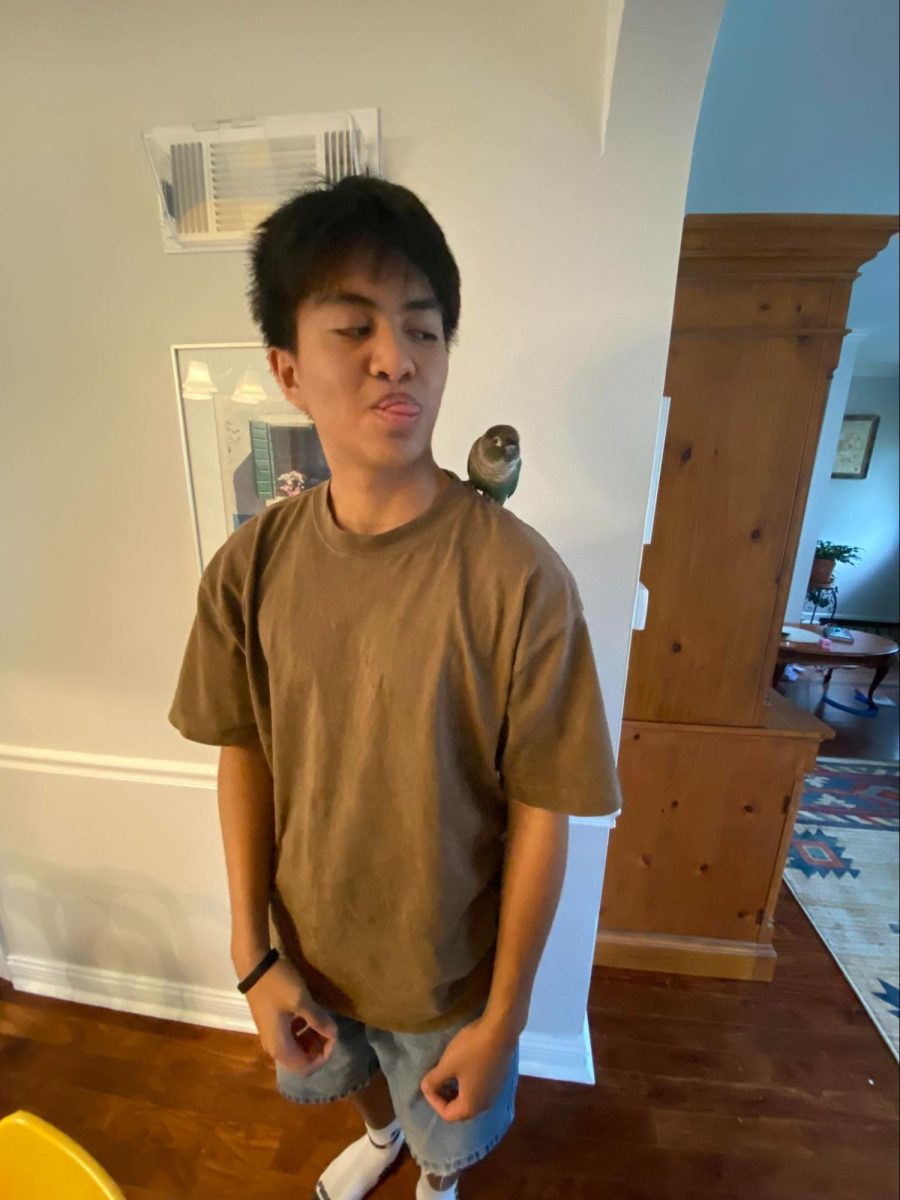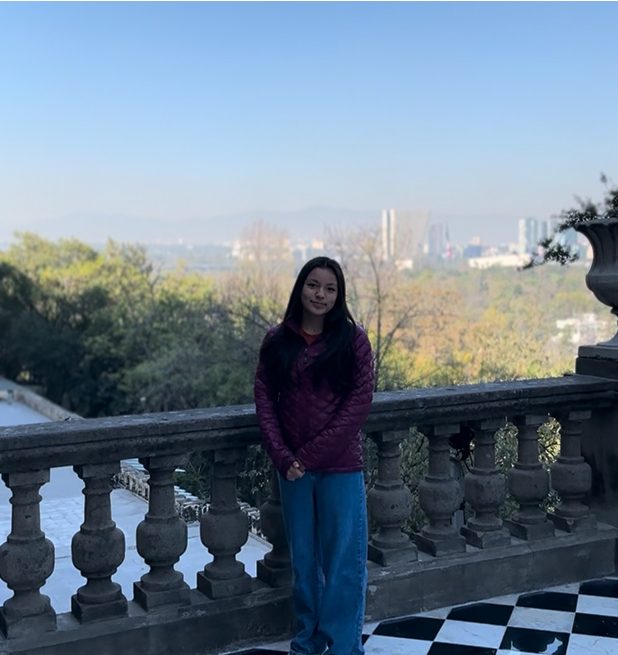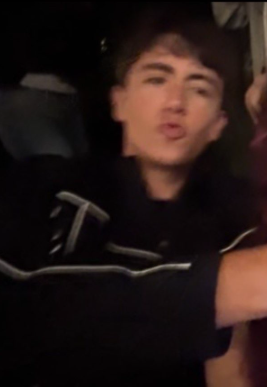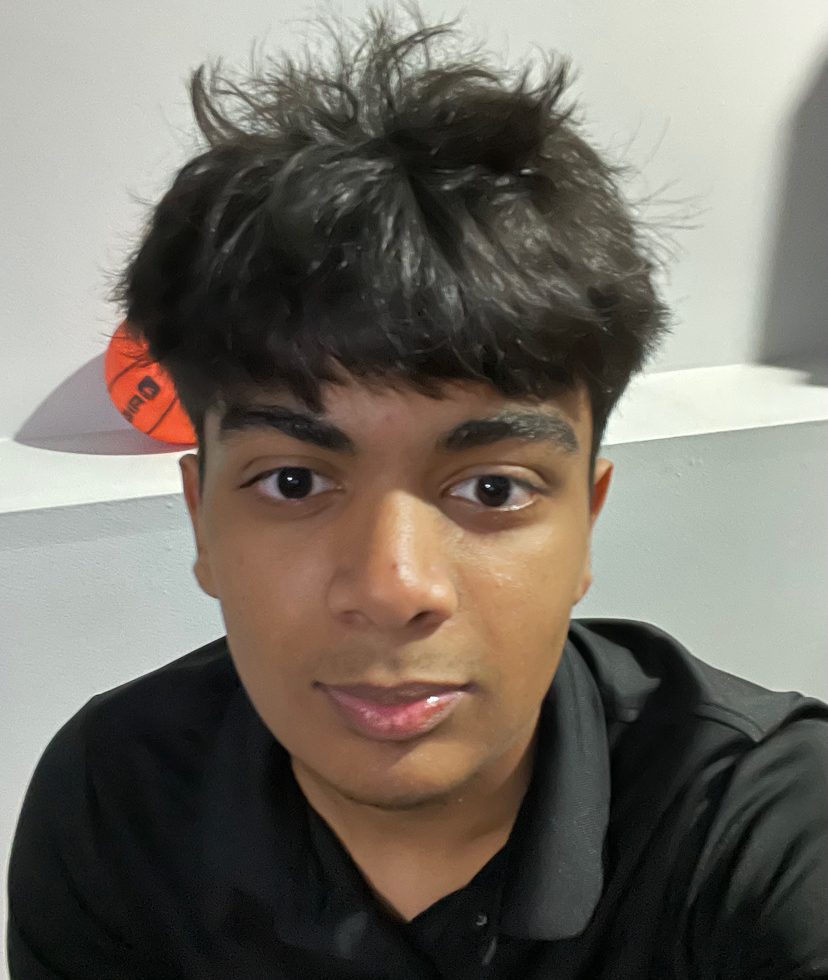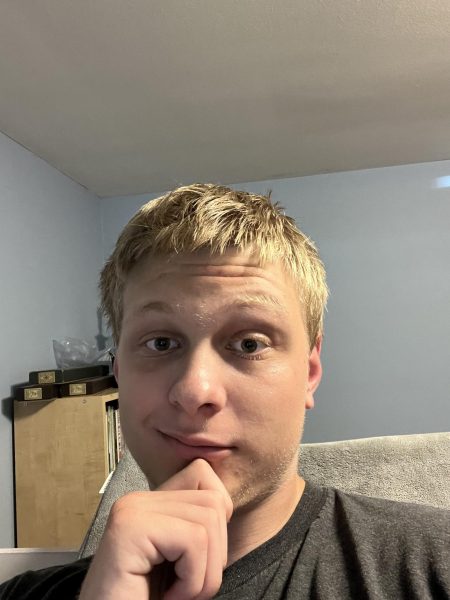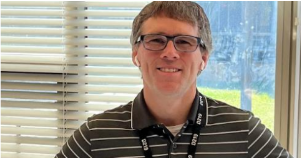
What’s your name, and what department do you work in? My name is Sean Delahanty, and I work in the Math Department at Niles North.
How long have you been teaching at Niles North? About 14 years, something like that.
What do you really appreciate about Niles North? I love working with the students. I especially love having the chance to work with them one on one, and at the Point we’re just one on one in general. But yeah, I just love teaching students math, helping them to make connections. Especially watching them have those aha! moments, when it comes together and they realize, “Oh, that’s how we do that!” Or “Oh, that’s what we’re driving at here.” It’s just a lot of fun.
Are there any parts of math that you particularly notice people figuring out or that you especially love it when people understand because they’re that hard? I really enjoy teaching proofs, because I teach a lot of geometry. I have for a long time. I really enjoy when students are able to really understand proof; when I give them challenging proofs that require seven, eight or more steps to complete and they really understand the process. I really enjoy that.
What do you love about math and teaching math? I love that math almost always has a right answer. I love that math is like puzzles. I love that math, most of the time, can be visualized–you can take something that, algebraically, looks very complicated, but visually you can represent it with a picture, and literally, you can see the relationship. I love that. I love how math has helped human beings to evolve in everything from technology to safety to building bridges between people. A lot of that is because of mathematical understanding.
How has math helped do things like that? Well, for example, understanding mathematics helped people to build the pyramids. The ancient Egyptians had an understanding of right triangles. It’s not exactly the way that we understand it today, but thousands of years ago, they understood how right triangles were formed. And so they were able to efficiently create blocks that had right corners and edges that fit together seamlessly, which allowed them to build these giant structures. Organizationally, understanding mathematical patterns helps people to be more efficient at how they do everything from deliver packages to structure buildings and whatnot. It helps in just all kinds of ways, endless ways.
What is something, be it material or otherwise, that you value? I value hard work. I value dedication. I value honesty. I value reliability. And I value humility, self sacrifice, and love.
Do you think you see a lot of those in your students? Oh, every day, every day. Students have to work hard to learn math–doesn’t matter who you are. At some point, math gets tough and you have to work hard to learn it. Students are helpful to each other. Students are honest with me and with themselves about what they understand and don’t understand. Students make sacrifices all the time in order to accomplish what they want to accomplish. And sometimes it’s doing things that they don’t want to do. And the humility comes through when students have to be honest with themselves about what they don’t understand. Nobody likes to be the student who is lost in class. Nobody likes to be that person, especially when it seems like your classmates do understand, and it seems like maybe you’re the only one who’s confused. And students show humility all the time, to either raise their hand and ask a question, or to come to the point to get one on one help. And then they do it and they have the perseverance to work hard, stick through it and learn what it is that they need to learn. Yeah, I see it in my students. All the time.
Who do you admire most, and why? That’s a tough one. I don’t know that there’s one person I admire most. I was very impressed with what I learned about George Washington–who he was as a person was just very impressive. I admire what Martin Luther King did. I admire what Gandhi did. I admire, and I’m grateful to, [Daniel] Burnham, who was an important person in Chicago–who was a big reason why Chicago has all the public access to the lakefront that it has, because of what Burnham did.
Do you think artificial intelligence is going to impact the way we do math? How do you feel about this? I haven’t thought enough about AI. I should have, because the concept of it has been around for a long, long time–going back to silly movies that were made back in the 1980s, like the Terminator movies. This idea of AI has been looming for a long time. I think it’s here. I think it’s silly to deny it, or to fight it. It’s not going to go away. How it’s going to impact learning math, is that more and more, it’s going to have students spend less time doing simple computations and rote memorization and more time doing things like collaborative problem solving, which is a good thing.
What would your dream job be if you weren’t a teacher? If I weren’t a teacher, I would love to be an outdoor leadership organizer. Someone who takes people on trips in the mountains, out in nature. I would love to be able to do that. I would also love to be affiliated in some way with a golf course. Not sure exactly in what capacity I would do that, but I just love golf courses. I love being on them. I love playing them. I love them.


